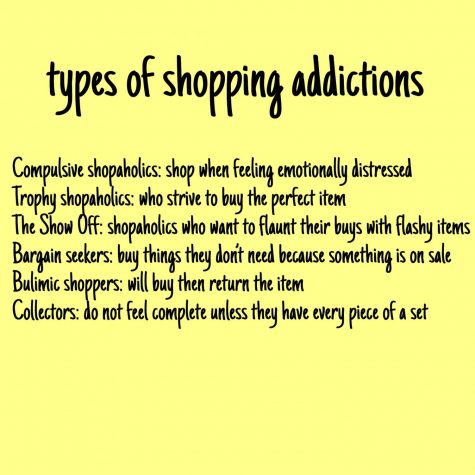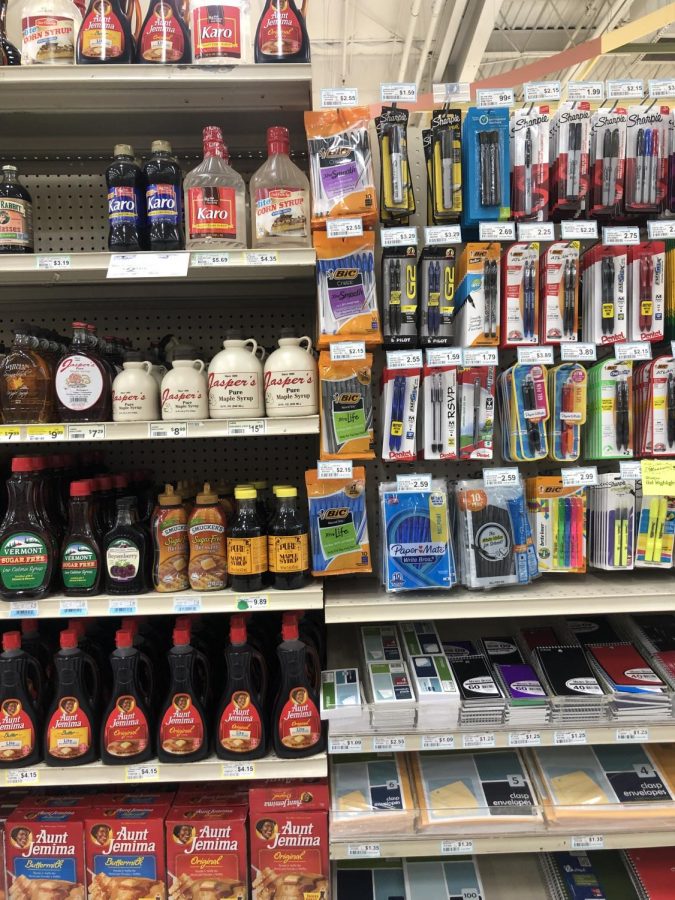Buying Happiness
A local kroger has their items on display in an orderly fashion so shopping can buy with ease.
Picture that feeling you get when you buy something you absolutely love: That warm fuzzy feeling you get inside. Whether it is a new album with your favorite artist, that new top, or that Starbucks every morning to start your day off right. Believe it or not, there is some real science behind every purchase. Money can’t buy happiness, but it can assist in some brain processes that enhance one’s emotions.
According to Ruth Engs from Indiana University, the process of buying something makes the brain very happy. Happiness is formed with the creation of endorphins and dopamine with every buy. Over time, the brain will start to associate that feeling you get with “buying,” so the brain can physically get addicted to this process. Like any kind of addictive substance, the brain will crave that feeling.
Since basic human survival requires buying tangible items like food, shelter, and clothing garments, every single person is at risk to this process. Engs claims “10 to 15 percent of the population may be predisposed to these feelings” and there is little that can be done to rewire the brain to not respond in the way it normally does. Initially, a shopaholic will feel positive about the purchase, but later might regret the decision with the increase in debt. Debt makes people feel a loss of control, in relation to their unstable financial situation. This sadness may lead to a want in some sort of “pick-me-up”, so the shopping continues and it becomes a vicious cycle. Adams students feel like they are able to connect to this phenomenon in their everyday shopping endeavors.
“When I’m upset I go to Great Lakes and buy a lot of crop tops. I usually just go to Forever 21 to get them. Those kinds of shirts are super cute and I feel happy and confident when I wear them, so I get more when I’m upset,” said freshman Khelya Rose.
Rose feels more confident and happy after a purchase. Like most people, in this kind of situation, Rose’s brain releases chemicals that make her feel good.
Chicago Tribune has published studies with evidence stating that those addicted to shopping can experience withdrawals similar to a drug addict. Irritability or depression can develop if that shopping need is not fulfilled. If anyone has this issue, they should seek counseling or therapy as soon as possible.
Junior Kaitlyn Oviatt is very aware of the issue, and speaks her view and opinion. She even discussed something dangerous in the shopaholics community, window shopping,
“Sometimes I shop when I’m stressed, whether it be just going to the mall or just looking online. Overall It can allow a person to take a break from what they are stressed or upset about and do something they enjoy,” said Oviatt.
According to Donald Black from the University of Iowa, this epidemic is not just a choice, but a mental issue Many shoppaholics struggle with anxiety or depression as a pre-existing condition prior to the development of their shopping habits. Rather than getting help for those issues, they use shopping to help, but it instead has a reverse effect and creates another issue.

A visual depicting the different kinds of shopping addicts there are. Depending on the type, different treatment/counseling may be needed.
Shopping addictions lurk in the shadows behind closed doors of America, underneath piles of receipts, and stacks of maxed out credit cards. Secret buys hidden from family members and loved ones.These issues may not inflict physical harm, but they may lead to other issues relating to mental health; for that reason alone it should be taken more seriously. Despite the happiness shopping brings short term, shopping addictions are a real problem that require more attention.







